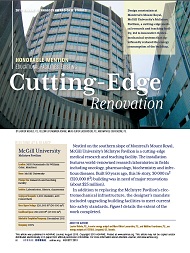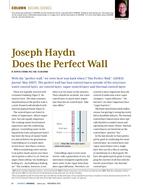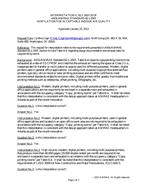Physically modelling room air movement is a reliable method for studying room air flow characteristics and ventilation effectiveness. However, a proper scaling method is needed to extrapolate the measured results from one physical model to rooms of different sizes so that the results are more useful to ventilation system design engineers. The objective of this study was to develop a scaling method for nonisothermal and not fully developed turbulent ventilation flows, which are typical in realistic room ventilation conditions. Similitude modelling for predicting room air motion was investigated theoretically and experimentally with full- and one-fourth-scale test rooms. The critical Archimedes number, at which the diffuser air jet fell immediately after entering the room, was found to decrease when the room dimensions decreased. A new scaling method was proposed based on the relative deviation of Archimedes number from its critical value. Preliminary evaluation of the new scaling method was conducted by comparison between the one-fourth-scale tests and the corresponding full-scale tests, which indicated that the new scaling method predicted well the overall room air flow patterns, distributions of mean velocity, temperature, and levels of turbulence intensity and turbulent kinetic energy in the occupied regions. Ways for improving the scaling method further are also identified.
KEYWORDS: calculating, rooms, ventilation, air flow, air movement, properties, performance, measuring, testing, models, air jets, comparing, accuracy, turbulent flow.
Citation: ASHRAE Transactions 1993, Vol.99, pt.1
Product Details
- Published:
- 1993
- Number of Pages:
- 10
- File Size:
- 1 file , 1.2 MB
- Product Code(s):
- D-17624


